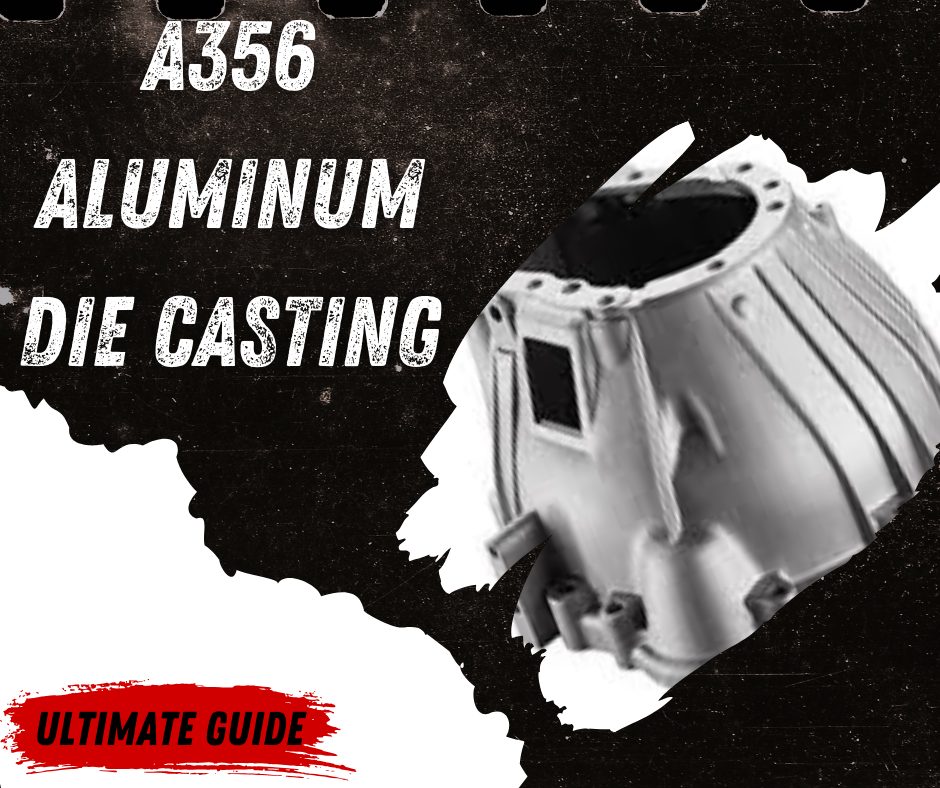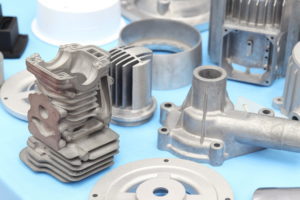Not known Details About Alcast Company
Not known Details About Alcast Company
Blog Article
Facts About Alcast Company Revealed
Table of Contents4 Simple Techniques For Alcast CompanyThe Ultimate Guide To Alcast CompanyAlcast Company - QuestionsAn Unbiased View of Alcast CompanyExamine This Report on Alcast CompanyAll about Alcast Company
Chemical Contrast of Cast Aluminum Alloys Silicon promotes castability by reducing the alloy's melting temperature and improving fluidity during casting. Furthermore, silicon contributes to the alloy's strength and wear resistance, making it valuable in applications where resilience is important, such as vehicle parts and engine components.It also enhances the machinability of the alloy, making it less complicated to refine into completed products. By doing this, iron adds to the overall workability of aluminum alloys. Copper raises electric conductivity, making it useful in electric applications. It also enhances corrosion resistance and includes to the alloy's total stamina.
Manganese adds to the strength of light weight aluminum alloys and improves workability. Magnesium is a light-weight aspect that provides toughness and effect resistance to aluminum alloys.
The Ultimate Guide To Alcast Company
It allows the production of lightweight parts with exceptional mechanical residential properties. Zinc improves the castability of light weight aluminum alloys and aids regulate the solidification procedure during casting. It enhances the alloy's stamina and solidity. It is often discovered in applications where complex forms and great information are necessary, such as ornamental castings and specific automobile parts.

The key thermal conductivity, tensile toughness, return strength, and elongation differ. Select suitable resources according to the performance of the target product created. Amongst the above alloys, A356 has the highest thermal conductivity, and A380 and ADC12 have the lowest. The tensile limitation is the opposite. A360 has the ideal yield strength and the greatest prolongation price.
Alcast Company for Beginners

In precision spreading, 6063 is appropriate for applications where detailed geometries and top notch surface finishes are extremely important. Examples include telecommunication units, where the alloy's superior formability allows for sleek and visually pleasing styles while keeping architectural stability. In a similar way, in the Lighting Solutions market, precision-cast 6063 elements produce elegant and effective lighting components that need complex shapes and excellent thermal efficiency.
It results in a better surface finish and much better rust resistance in A360. Additionally, the A360 shows remarkable elongation, making it optimal for facility and thin-walled components. In accuracy casting applications, A360 is well-suited for industries such as Consumer Electronics, Telecommunication, and Power Devices. Its enhanced fluidity permits elaborate, high-precision parts like mobile phone coverings and communication tool real estates.
Excitement About Alcast Company
Its special properties make A360 a valuable selection for precision casting in these sectors, enhancing item sturdiness and top quality. Light weight aluminum alloy 380, or A380, is an extensively utilized casting alloy with a number of distinct features. It supplies exceptional castability, making it an excellent option for accuracy casting. A380 displays excellent fluidness when molten, making sure intricate and comprehensive mold and mildews are accurately reproduced.
In accuracy casting, aluminum 413 radiates in the Consumer Electronics and Power Tools sectors. It's commonly used to craft complex parts like smart device housings, cam bodies, and power device housings. Its precision is remarkable, with tight resistances approximately 0.01 mm, making sure flawless their website item setting up. This alloy's premium corrosion resistance makes it a superb option for outdoor applications, ensuring long-lasting, resilient products in the stated markets.
Get This Report on Alcast Company
The aluminum alloy you select will significantly influence both the casting process and the homes of the final item. Because of this, you need to make your choice thoroughly and take an informed strategy.
Determining the most appropriate light weight aluminum alloy for your application will certainly suggest evaluating a large variety of qualities. These relative alloy attributes comply with the North American Pass Away Casting Association's standards, and we have actually separated them right into 2 categories. The first classification addresses alloy features that affect the production procedure. The second covers features impacting the residential or commercial properties of the end product.
The 3-Minute Rule for Alcast Company
The alloy you choose for die spreading straight influences numerous aspects of the spreading process, like exactly how simple the alloy is to deal with and if it is susceptible to casting problems. Hot cracking, additionally referred to as solidification splitting, is a regular die spreading defect for light weight aluminum alloys that can lead to interior or surface-level tears or splits.
Certain light weight aluminum alloys are more susceptible to warm splitting than others, and your choice ought to consider this. Another usual problem found in the die casting of light weight aluminum is pass away soldering, which is when the actors adheres to the die walls and makes ejection difficult. It can damage both the cast and the die, so you should seek alloys with high anti-soldering properties.
Deterioration resistance, which is already a significant attribute of aluminum, can differ significantly from alloy to alloy and is an essential characteristic to consider depending on the ecological conditions your product will be subjected to (aluminum foundry). Wear resistance is an additional residential or commercial property typically looked for in aluminum products and can distinguish some alloys
Report this page